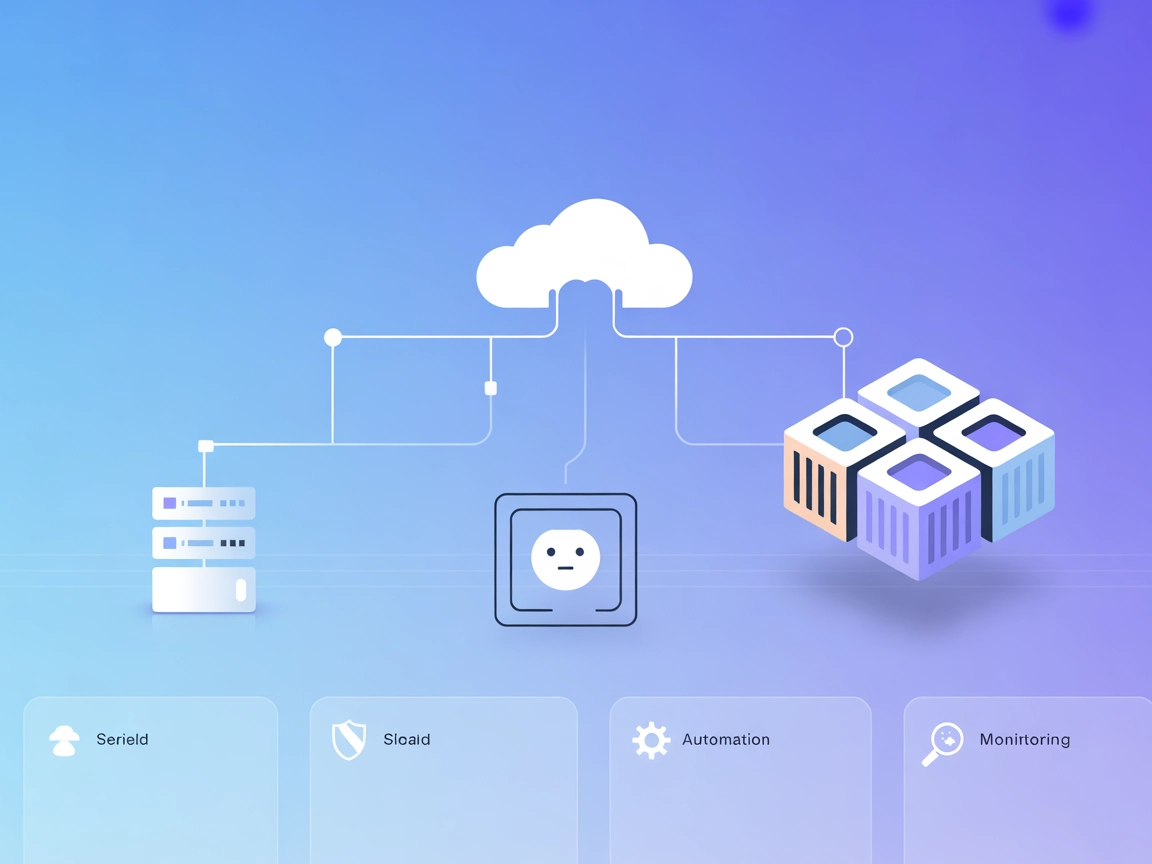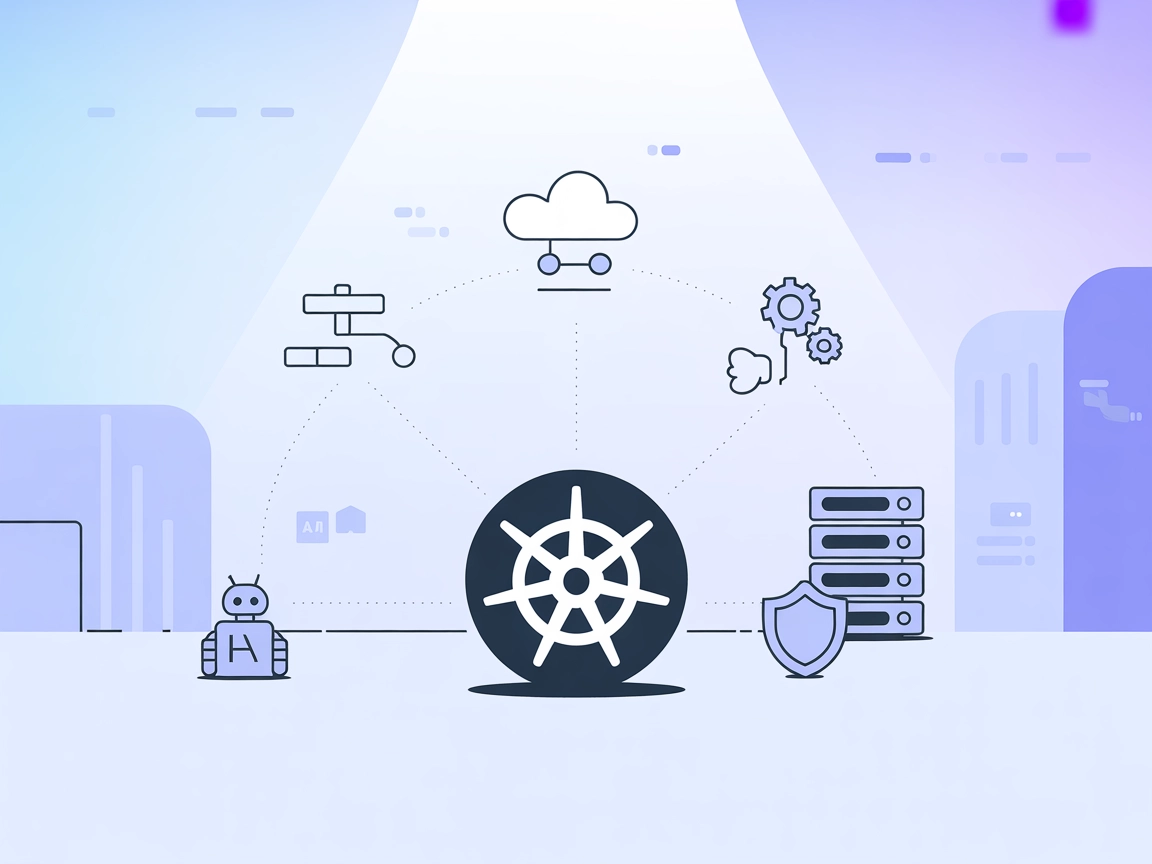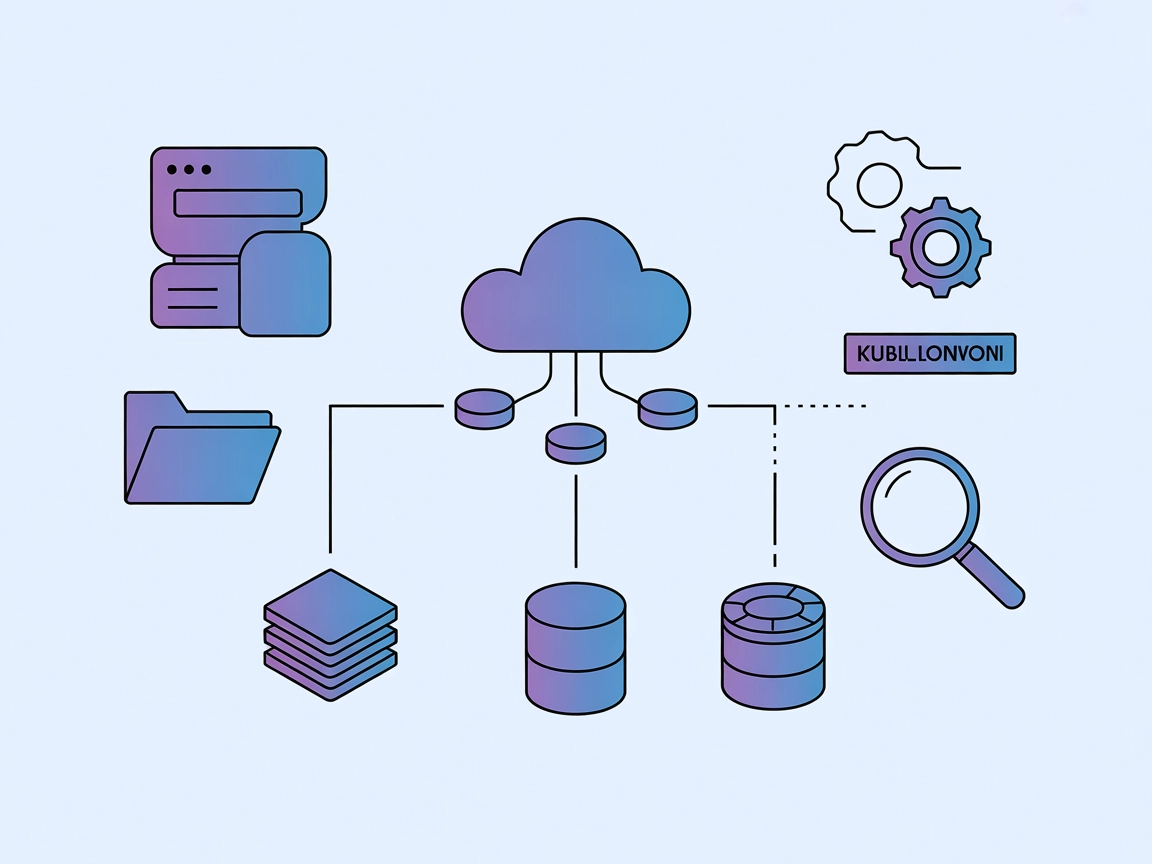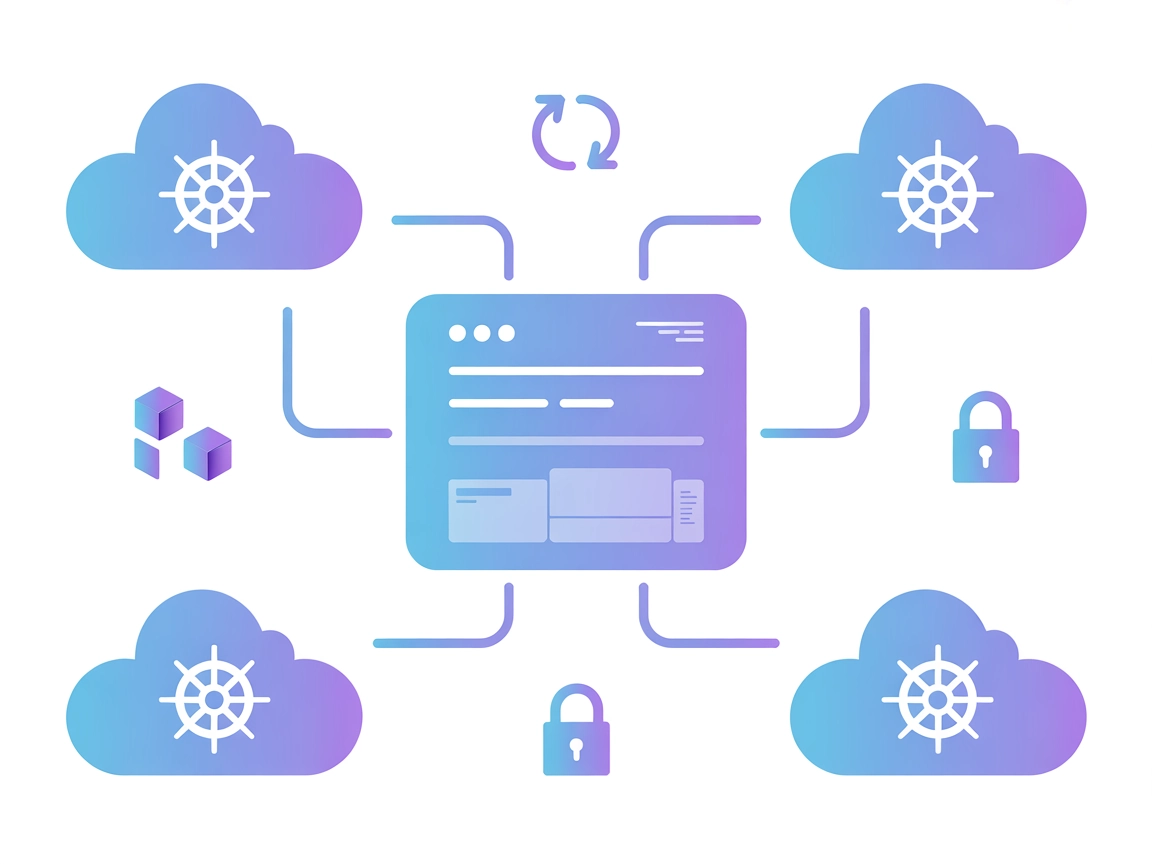mcp-k8s-go MCP Server
Connect AI assistants to Kubernetes clusters securely and efficiently with the mcp-k8s-go server, enabling automation, monitoring, and management of cloud-native resources through a unified MCP interface.

What does “mcp-k8s-go” MCP Server do?
The mcp-k8s-go MCP Server is a Golang-based implementation of the Model Context Protocol (MCP) designed to connect AI assistants with Kubernetes clusters. It acts as a middleware between AI agents and Kubernetes APIs, allowing AI-driven workflows to interact programmatically with Kubernetes resources. By exposing cluster operations and contextual data, mcp-k8s-go enables tasks such as querying cluster status, managing deployments, inspecting pods, and more—all through a standardized MCP interface. This greatly enhances developer productivity by allowing AI assistants to automate, monitor, and manage Kubernetes environments seamlessly, making cloud-native operations more accessible and efficient.
List of Prompts
No prompt templates are mentioned in the available documentation or codebase.
List of Resources
No explicit resources are described in the available documentation or codebase.
List of Tools
No detailed tool definitions are directly exposed in the accessible code or documentation.
Use Cases of this MCP Server
- Kubernetes Cluster Management
Developers can automate routine tasks such as scaling deployments, rolling updates, and monitoring pod status using AI assistants connected via the MCP server. - AI-Powered Cluster Insights
AI assistants can provide real-time insights into cluster health, resource utilization, and error diagnostics by querying the Kubernetes API through mcp-k8s-go. - Automated Troubleshooting
Enable AI-driven workflows to detect and potentially remediate common cluster issues by integrating with the server. - Enhanced DevOps Automation
Use the MCP server as a bridge for AI-driven CI/CD pipelines and operational workflows within Kubernetes environments. - Secure Access Mediation
The server can act as a controlled gateway, allowing only authorized AI agents to perform actions on the Kubernetes cluster.
How to set it up
Windsurf
- Ensure prerequisites, such as Node.js and Docker, are installed.
- Open Windsurf’s configuration file (typically
windsurf.config.json). - Add the mcp-k8s-go MCP server to the
mcpServerssection:{ "mcpServers": { "mcp-k8s-go": { "command": "npx", "args": ["@strowk/mcp-k8s@latest"] } } } - Save the configuration and restart Windsurf.
- Verify the setup by checking server logs or running a test connection.
Securing API Keys
Use environment variables to store sensitive credentials:
{
"mcpServers": {
"mcp-k8s-go": {
"command": "npx",
"args": ["@strowk/mcp-k8s@latest"],
"env": {
"KUBECONFIG": "/path/to/kubeconfig"
}
}
}
}
Claude
- Ensure prerequisites are installed.
- Open Claude’s configuration file.
- Add the mcp-k8s-go server:
{ "mcpServers": { "mcp-k8s-go": { "command": "npx", "args": ["@strowk/mcp-k8s@latest"] } } } - Save and restart Claude.
- Confirm server availability through Claude’s interface.
Securing API Keys
{
"mcpServers": {
"mcp-k8s-go": {
"command": "npx",
"args": ["@strowk/mcp-k8s@latest"],
"env": {
"KUBECONFIG": "/path/to/kubeconfig"
}
}
}
}
Cursor
- Install prerequisites.
- Edit Cursor’s settings file.
- Add the MCP server entry:
{ "mcpServers": { "mcp-k8s-go": { "command": "npx", "args": ["@strowk/mcp-k8s@latest"] } } } - Save changes and restart Cursor.
- Validate by checking MCP server connectivity.
Securing API Keys
{
"mcpServers": {
"mcp-k8s-go": {
"command": "npx",
"args": ["@strowk/mcp-k8s@latest"],
"env": {
"KUBECONFIG": "/path/to/kubeconfig"
}
}
}
}
Cline
- Make sure all dependencies are installed.
- Open Cline’s config file.
- Add the following MCP server configuration:
{ "mcpServers": { "mcp-k8s-go": { "command": "npx", "args": ["@strowk/mcp-k8s@latest"] } } } - Save the file and restart Cline.
- Test the server through Cline’s interface.
Securing API Keys
{
"mcpServers": {
"mcp-k8s-go": {
"command": "npx",
"args": ["@strowk/mcp-k8s@latest"],
"env": {
"KUBECONFIG": "/path/to/kubeconfig"
}
}
}
}
How to use this MCP inside flows
Using MCP in FlowHunt
To integrate MCP servers into your FlowHunt workflow, start by adding the MCP component to your flow and connecting it to your AI agent:

Click on the MCP component to open the configuration panel. In the system MCP configuration section, insert your MCP server details using this JSON format:
{
"mcp-k8s-go": {
"transport": "streamable_http",
"url": "https://yourmcpserver.example/pathtothemcp/url"
}
}
Once configured, the AI agent is now able to use this MCP as a tool with access to all its functions and capabilities. Remember to change “mcp-k8s-go” to whatever the actual name of your MCP server is and replace the URL with your own MCP server URL.
Overview
| Section | Availability | Details/Notes |
|---|---|---|
| Overview | ✅ | |
| List of Prompts | ⛔ | |
| List of Resources | ⛔ | |
| List of Tools | ⛔ | No explicit list found |
| Securing API Keys | ✅ | Via env KUBECONFIG |
| Sampling Support (less important in evaluation) | ⛔ | Not mentioned |
Based on the available information, the mcp-k8s-go MCP server provides a Kubernetes interface via MCP but lacks explicit documentation for prompts, resources, and sampling. The setup and security guidance are clear. I would rate this MCP server a 5/10 for general usability and documentation completeness, primarily due to missing details on MCP-specific resources and tools.
MCP Score
| Has a LICENSE | ✅ (MIT) |
|---|---|
| Has at least one tool | ⛔ |
| Number of Forks | 37 |
| Number of Stars | 308 |
Frequently asked questions
- What is the mcp-k8s-go MCP Server?
The mcp-k8s-go MCP Server is a Golang-based middleware that connects AI assistants to Kubernetes clusters via the Model Context Protocol, enabling programmatic cluster management, monitoring, and automation.
- What can I automate with mcp-k8s-go?
You can automate Kubernetes operations such as scaling deployments, rolling updates, monitoring pods, and troubleshooting, all by connecting AI-driven workflows through the MCP server.
- How do I secure my Kubernetes credentials?
Store sensitive data such as your kubeconfig path in environment variables, as shown in the setup guides for each client. This ensures secure and controlled access by your MCP server.
- Does mcp-k8s-go support resource sampling or prompt templates?
No, the current documentation does not mention support for resource sampling or provide prompt templates. The server focuses on exposing Kubernetes operations via MCP.
- How do I integrate mcp-k8s-go with FlowHunt?
Add the MCP server details to your FlowHunt flow using the MCP component. Configure the MCP server's transport and URL in the system MCP configuration panel to enable your AI agent to access Kubernetes functions.
Supercharge Your Kubernetes Workflows
Integrate mcp-k8s-go with FlowHunt and empower your AI agents to manage Kubernetes clusters with ease.



